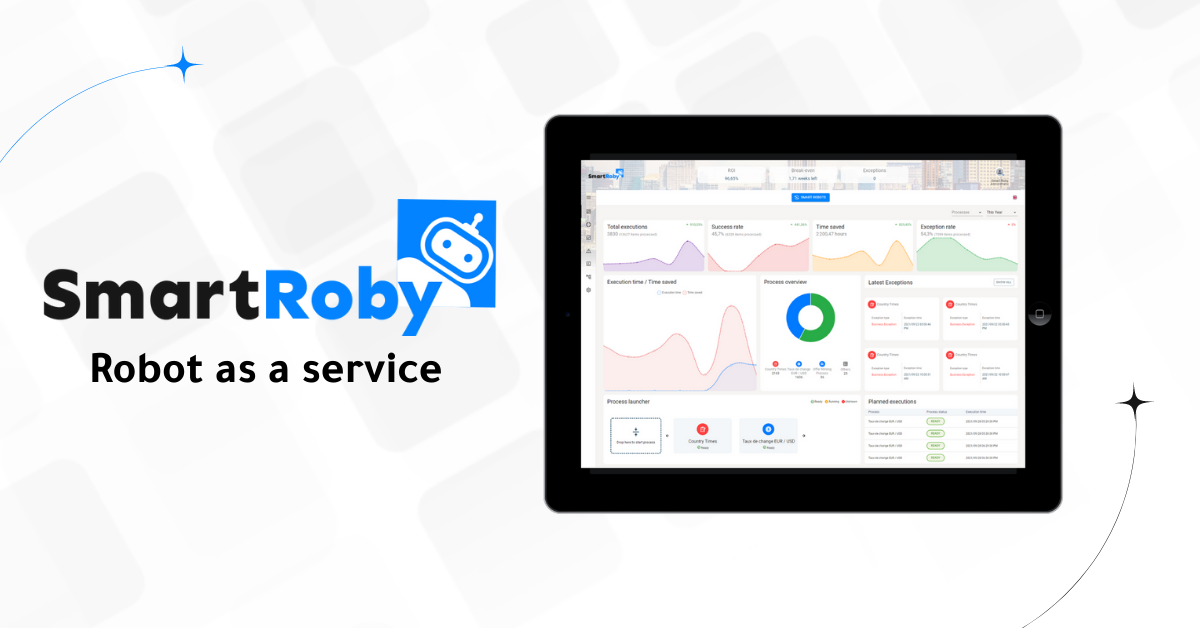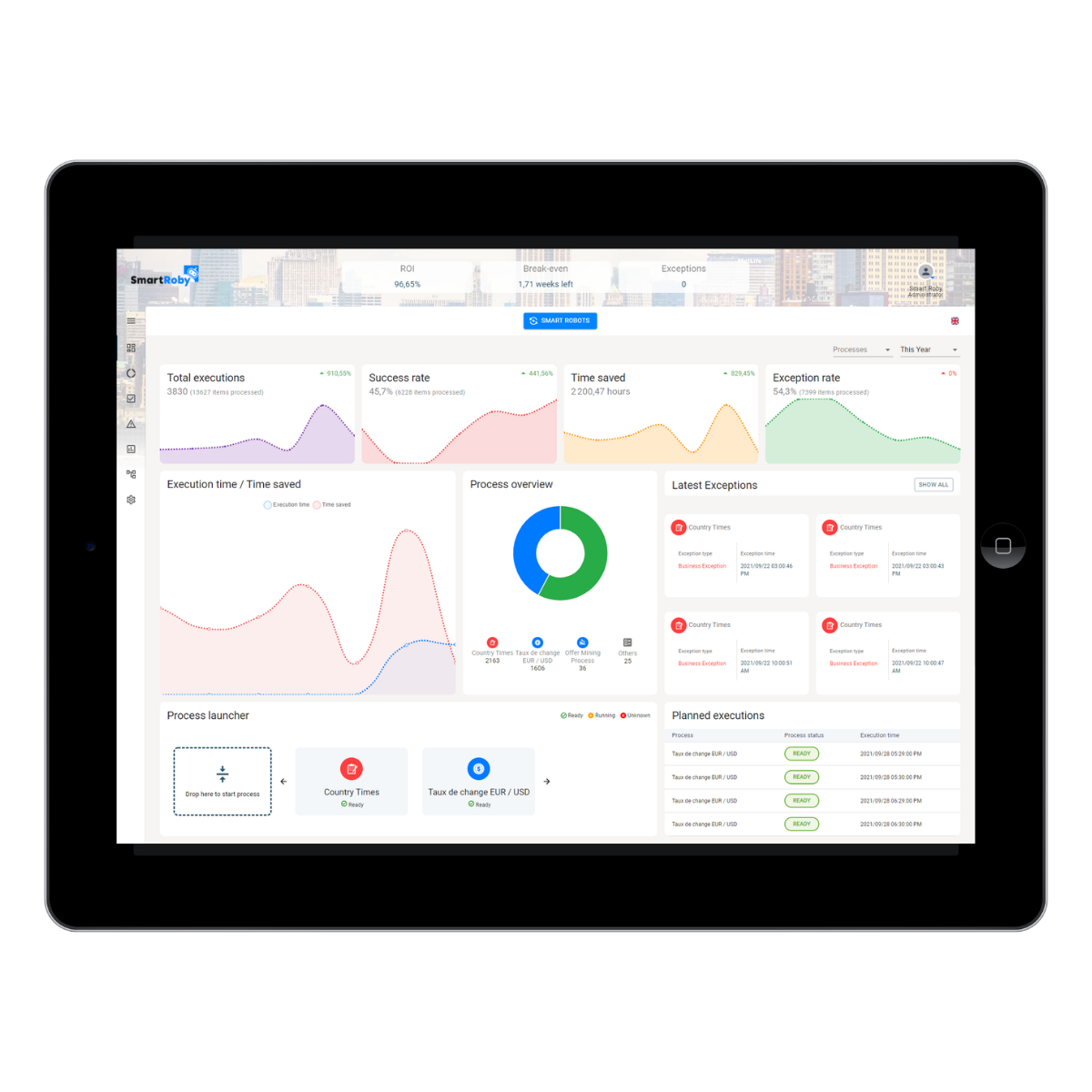In a world where efficiency and productivity have become essential, business process automation (through RPA – Robotic Process Automation and AI – Artificial Intelligence) stands out as a strategic lever.
At Novelis, we leverage RPA and AI to optimize our clients’ workflows, improve operational quality, and free employees from repetitive tasks. The integration of AI into our methodology is a key factor, enabling the automation of highly complex processes within information systems. It serves as an additional performance driver.
What is RPA?
Robotic Process Automation (RPA) relies on software capable of performing repetitive tasks in place of humans. Unlike traditional automation solutions, RPA is non-intrusive: it works with existing systems without requiring a technological overhaul.
The benefits are numerous:
- Cost reduction: Automation speeds up processing and reduces errors.
- Productivity gains: Employees can focus on higher-value tasks.
- Rapid implementation: Automation can be deployed in just a few weeks.
- Data reliability: Eliminates human errors and improves processing quality.
Our Use Cases at Novelis
At Novelis, we have successfully implemented multiple RPA solutions to address our clients’ concrete needs:
- Ramsay Santé Optimizes Operations with Novelis
To sustainably enhance operational efficiency, ensure service quality, and reduce unjustified costs, Ramsay Health partnered with Novelis to implement a comprehensive Intelligent Automation solution.
Discover this use case
- Private Bank: Automating Client Onboarding in the Core Banking System
We supported this financial institution in seamlessly and accurately automating new client integration into its core banking system, eliminating manual errors and accelerating the process.
Discover this use case
Why Choose Novelis for Your RPA Project?
At Novelis, we guide our clients through every step of automation:
- Process analysis to identify automation opportunities
- Design and deployment of an integrated RPA & AI solution tailored to business needs, covering a broader process scope than RPA alone
- Monitoring and optimization to ensure peak performance
Our expertise allows us to deliver customized solutions that generate a rapid return on investment.












